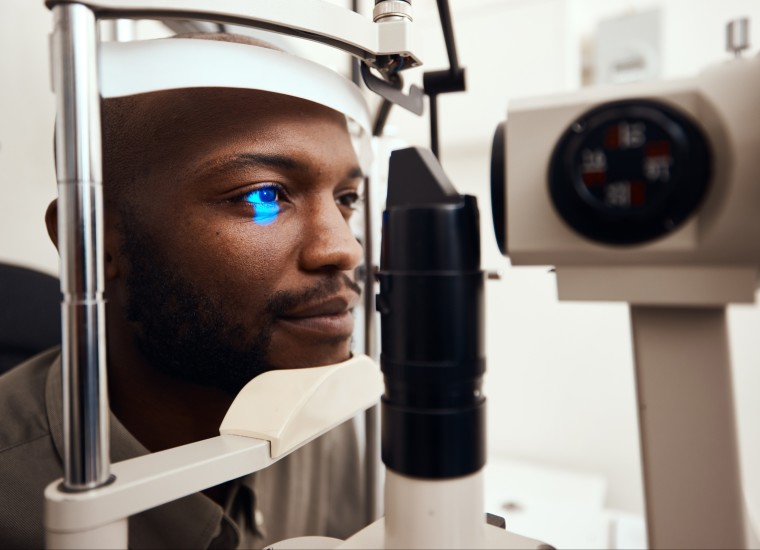All Categories
Featured
Table of Contents

Normal eye examinations are vital for keeping excellent vision and spotting prospective eye health problems early. Nevertheless, the regularity of these examinations can vary considerably based upon an individual's age, lifestyle, and total health and wellness. Comprehending the recommended routine for eye tests can assist guarantee that people of all ages receive proper treatment and monitoring for their eye health and wellness.
Infants and Toddlers (0-2 Years)
For young children and infants, eye examinations are essential for identifying any prospective vision troubles beforehand. The American Academy of Ophthalmology recommends that a child's very first eye exam need to happen at around 6 months of age. Throughout this preliminary go to, the eye care professional will analyze the youngster's aesthetic advancement and check for any evident eye issues.Following this very first test, it is suggested that children have an additional eye test at age 3. This browse through will focus on analyzing the kid's overall aesthetic function, including eye placement and the capacity to track things. If no issues are discovered, the next test ought to be set up before the kid starts school, commonly around age 5 or six.
School-Aged Children (6-18 Years)
As soon as youngsters reach college age, routine eye exams need to be arranged each to two years. Vision is essential for finding out and growth, and lots of schools carry out vision screenings. Nevertheless, these screenings do not replace a detailed eye exam by an eye care professional.For kids associated with activities or sporting activities requiring substantial visual emphasis, yearly eye examinations may be recommended. Additionally, if a kid shows indications of vision troubles-- such as problem reading, scrunching up your eyes, or constant migraines-- a browse through to the eye physician need to be scheduled as soon as feasible.
Youthful Grownups (19-39 Years)
Youthful adults commonly have fewer vision adjustments than older age, however normal eye exams continue to be important. The basic referral is to schedule an eye exam every two years during this period. Nonetheless, people with particular risk elements-- such as a household history of eye condition, diabetes mellitus, or those that put on contact lenses-- ought to think about annual eye tests.In addition, those who spend significant time on digital devices may experience digital eye pressure. If symptoms such as dry skin, tiredness, or obscured vision happen, it might be a good idea to see an eye treatment expert sooner.
Grownups (40-64 Years)
As people enter midlife, the probability of developing vision problems increases. Adults aged 40 to 64 should schedule eye tests each to two years. This age team might begin to experience presbyopia, a natural age-related problem that makes it challenging to focus on close items. Eye exams can likewise aid discover various other usual age-related problems such as glaucoma, cataracts, and macular deterioration.If people in this age have threat elements such as high blood pressure or diabetes mellitus, they may need even more frequent exams to check their eye health and wellness very closely.
Senior Citizens (65 Years and Older)
For seniors, regular eye exams come to be also more critical. The American Optometric Association advises that people aged 65 and older have an eye examination at the very least once a year.Final thought.
Comprehending the appropriate routine for eye exams based on age is essential for keeping ideal eye wellness throughout life. From babies to seniors, normal eye exams play a vital role in spotting problems early and making sure that vision continues to be sharp. By adhering to these guidelines and consulting with an eye care expert, people can take proactive actions towards preserving their vision and general health. Whether it's a child's first visit or an elderly's annual examination, prioritizing eye care is a financial investment in lifelong wellness.Table of Contents
Latest Posts
Set Up Spectacular Soirées at Deauville Inn: Delight in 6 Unique Rooms
Published May 17, 25
2 min read
Relax with the Ideal Delighted Hour in Community at Yesterday's Pub
Published May 14, 25
1 min read
Dine with a View: Boat Up to Deauville Inn’s Coastal Patio
Published May 14, 25
2 min read
More
Latest Posts
Set Up Spectacular Soirées at Deauville Inn: Delight in 6 Unique Rooms
Published May 17, 25
2 min read
Relax with the Ideal Delighted Hour in Community at Yesterday's Pub
Published May 14, 25
1 min read
Dine with a View: Boat Up to Deauville Inn’s Coastal Patio
Published May 14, 25
2 min read